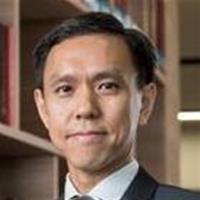Holistic Palliative Care Programme (HoPE)
Introduction to HoPE
Lee Kong Chian School of Medicine is the first in Asia to offer a stackable postgraduate programme, leading sequentially to a Graduate Certificate, FlexiMasters and a Master of Science (MSc) degree in HoPE. HoPE aims to enhance the palliative care workforce by creating opportunities for healthcare workers to be trained by a multidisciplinary team of experts and to be formally qualified.
Customised Curriculum and Impact Across Asia
The curriculum of HoPE is designed around the local and regional culture and contexts, making it highly relevant to the Asian population. It is also customised to be “friendly” to working adults through its stackable design that provides multiple entry and exit points in the training pathway, enabling new healthcare workers to join the palliative care workforce and for existing healthcare workers to upgrade their skills and capabilities. Since Asia as a continent also faces the challenges of an ageing population and manpower development needs in palliative care, HoPE can also help to enhance the palliative ecosystem across Asia.
This course is mostly conducted online, with both online self-learning materials and online tutorials.

Addressing Quality Gaps in Healthcare Training
While the government and social organisations may build more infrastructures to cater to the growing needs for palliative care, having competent healthcare workers provides the essential foundation for a high standard of care in the end-of-life care setting. In the 2015 Quality of Death Index, commissioned by the Lien Foundation, Singapore was ranked 12th in the world, and 2nd in Asia behind Taiwan (ranked 6th globally). End-of-life care quality was rated against the palliative and healthcare environment in the country, availability and training of healthcare professionals and support staff, affordability of care, quality of care, and community engagement. In that ranking exercise, the areas where Singapore needed to improve upon was the quality of healthcare worker training. These gaps in healthcare worker training place HoPE in good position to advance palliative care in Singapore and Asia.
Understanding HoPE
Each course is assigned with an academic unit (AU) number, which indicates the amount of learning undertaken and the depth of learning involved. Assessments will be conducted and participants will be graded based on their performance in the assessment. Each completed course is stackable to the FlexiMasters Certificate.
The Holistic Palliative Care Programme (HoPE) is a part-time postgraduate course that is designed to be stackable, so that participants can accumulate their AU along a single training pathway, requiring a minimum GPA of 2.5 (equivalent to a letter grade of C+) or higher. This allows them to graduate with a Graduate Certificate (9 AUs), FlexiMasters (6 AUs) and a Master of Science (MSc) degree in palliative care (15 AUs). Such a stackable programme provides the flexibility to meet different learning needs by allowing participants to exit and re-enter the training pathway within the maximum duration period of each sub-programme (refer to Table 1). The candidature will start once student is enrolled into the Graduate Certificate programme. The maximum candidature for the entire pathway of Graduate Certificate, FlexiMasters and Master programme is 7 years.
Table 1. Programme Duration and Academic Units
| Programme Title | Minimum duration of completion (year) | Maximum duration of completion (year) | No of AUs | Accumulated AUs | |
|---|---|---|---|---|---|
| Graduate Certificate in Holistic Palliative Care | 1 | 2 | 9 | 9 (after successful completion of the Graduate Certificate) | |
| FlexiMasters in Holistic Palliative Care | 1 | 2 | 6 | 15 (after successful completion of the Graduate Certificate and FlexiMasters) | |
| MSc in Holistic Palliative Care | 1.5 | 3 | 15 | 30 (after successful completion of the Graduate Certificate, FlexiMasters and Master’s) | |
Note : The AUs are cumulative as participants progress along the compulsory pathway from Graduate Certificate to FlexiMasters to Master’s programme, i.e. 9 AU + 6 AU + 15 AU. Eligible participants who have successfully accumulated a total of 30 AU will be conferred the Master’s degree in Holistic Palliative Care (HoPE).
Participants are required to successfully complete a minimum of 9 AUs of specific HoPE courses and achieve a minimum GPA 2.5 from each considered course to be awarded a Graduate Certificate in HoPE and progress to the FlexiMasters in HoPE.
Participants are required to successfully attain 15 AUs of specific HoPE courses and achieve a minimum GPA 2.5 from each considered course to be awarded a FlexiMasters in HoPE.
Participants who attain a FlexiMasters in HoPE may choose to stack it towards Master of Science (MSc) degree in HoPE, subject to prevailing University’s guidelines and approval. Credit transfers are by application only and will be assessed and approved by the University. Credit transfer is subject to prevailing University Credit Transfer Policy. Participants must meet all required admission standards of the MSc programme. The MSc programme will commence in AY2027 and is subject to minimum class size. For the MSc degree in HoPE, participants are required to successfully attain a minimum of 30 AUs of specific HoPE courses and achieve a minimum CGPA of 2.5 to successfully complete the programme.
AY2024-25 Intake Schedule
| Course | AU | Start Date | End Date |
|---|---|---|---|
| MD6101 Foundations of Palliative Medicine | 3 | 5 Aug 2024 | 1 Nov 2024 |
| MD6102 Foundations of Psychosocial Care and Thanatology | 3 | 11 Nov 2024 | 21 Feb 2025 |
| MD6103 Foundations of Palliative Care in Practice | 3 | 3 Mar 2025 | 30 May 2025 |
| MD6201 Advanced Palliative Medicine | 2 | 4 Aug 2025 | 31 Oct 2025 |
| MD6203 Advanced Palliative Care in Practice | 2 | 10 Nov 2025 | 20 Feb 2026 |
| MD6202 Advanced Psychosocial Care and Thanatology | 2 | 2 Mar 2026 | 29 May 2026 |
AY2025-26 Intake Schedule (Tentative Schedule)
| Course | Course title | AU | Start Date | End Date |
|---|---|---|---|---|
| MD6101 | Foundations of Palliative Medicine | 3 | 4 Aug 2025 | 31 Oct 2025 |
| MD6103 | Foundations of Palliative Care in Practice | 3 | 10 Nov 2025 | 20 Feb 2026 |
| MD6102 | Foundations of Psychosocial Care and Thanatology | 3 | 2 Mar 2026 | 29 May 2026 |
| MD6201 | Advanced Palliative Medicine | 2 | 3 Aug 2026 | 30 Oct 2026 |
| MD6202 | Advanced Psychosocial Care and Thanatology | 2 | 9 Nov 2026 | 19 Feb 2027 |
| MD6203 | Advanced Palliative Care in Practice | 2 | 1 Mar 2027 | 28 May 2027 |
A brief description of the programme is shown below:
This is mainly an online programme, with a small component of onsite tutorials.
- Graduate Certificate in Holistic Palliative Care – 9 AU
- Foundations of Palliative Medicine (3 AU)
- Foundations of Psychosocial Care and Thanatology (3 AU)
- Foundations of Palliative Care in Practice (3 AU)
- Flexi Masters in Holistic Palliative Care – 6 AU
- Advanced Palliative Medicine (2 AU)
- Advanced Psychosocial Care and Thanatology (2 AU)
- Advanced Palliative Care in Practice (2 AU)
- Master in Holistic Palliative Care – 15 AU
- Research in Palliative Care (3 AU)
- Paediatric Palliative Care (3 AU)
- Communications in Palliative Care (3 AU)
- Economics of Care in Palliative Medicine + Global Palliative Care + Management and Leadership (3 AU)
- Clinical attachment (40 hours, 3 AU) – MD6008 Clinical attachment is a compulsory module for all students. We recognize that many of our students are already engaged in meaningful work within the palliative care sector. As such, if you are currently engaged in clinical work within palliative care, you have the option to apply for your current work experiences to be recognised towards fulfilling part of the requirements for the clinical attachment module. You must clearly show how your current job responsibilities meet the learning objectives of the module. You also have the option to complete your clinical attachment at another approved location or through a combination of your current job and an external placement. Regardless of the path you choose, the submission of a final report is mandatory. All applications will be assessed on a case-by-case basis and subject to prevailing guidelines.
*Students have to self-source their clinical attachment and submit to the programme office for approval a month prior to the clinical attachment.
Programme Schedule
AY2024-25 Intake
Download the FlexiMasters in HoPE programme schedule here.
AY2025-26 Intake
Download the Graduate Certificate in HoPE programme schedule here.
Faculty

Programme Director: Dr Emmanuel TAN, Programme Director,
Holistic Palliative Care (HoPE) programme, LKCMedicine

Course Director (Clinical): Dr Allyn HUM, Senior Consultant,
Palliative Medicine, Geriatric Medicine
| No | Full Name* | Medical Designation | Department | Organisation | Module Lead |
|---|---|---|---|---|---|
| 1 | Poi Choo Hwee | Senior Consultant | Dept of Palliative Medicine | Tan Tock Seng Hospital | Module Lead - MD6101 |
| 2 | Candice Tan | Principal Medical Social Worker | Dept of Care & Counselling | Tan Tock Seng Hospital | Module Lead - MD6102, MD6202 |
| 3 | Chia Siew Chin | Senior Consultant | Dept of Palliative Medicine | Tan Tock Seng Hospital | Module Lead - MD6103 |











